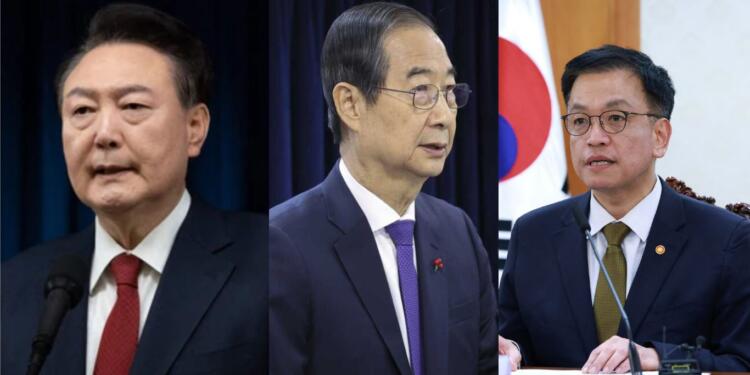South Korea’s recent political crisis has drastically exposed the domestic vulnerabilities in what was once called one of Asia’s most stable democracies. The chain of events reads like a political thriller: President Yoon Suk Yeol attempted to impose asudeen martial law on December 3rd, ordering troops to “shoot the doors” of the parliament and forcibly remove lawmakers. When parliamentarians barricaded themselves inside the National Assembly using furniture, Yoon allegedly instructed soldiers to break down the doors and “drag them out.” The military was even equipped with cable ties, baseball bats, and blindfolds, apparently prepared to detain election officials and opposition leaders. Though the martial law was overturned within six hours by a parliamentary vote, the aftermath has spawned a cascade of impeachments and constitutional crises that have left the nation reeling.
The speed at which South Korea’s democratic institutions began to crumble is particularly troubling. Within weeks, the country has cycled through three leaders: the original President Yoon, who was impeached and is now facing an unprecedented arrest warrant; his replacement, Prime Minister Han Duck-soo, who lasted just two weeks before being impeached himself; and now Finance Minister Choi Sang-mok, who serves as both acting president and Prime minister. This whole political turmoil almost looks comical and speaks volumes of the institutional stability of the country.
The crisis not only revealed the hollow nature of South Korea’s Democratic values but also put question on their political culture and institutional structure. The Constitutional Court, which should serve as the ultimate arbiter in times of political crisis, looks disabled by having only six of its nine seats filled. In order to uphold the impeachment, a minimum of six votes are required in the court. This means that to uphold the impeachment of Yoon, the votes of six of the nine judges must go together – a tool that has an appearance more designed to secure those in office rather than provide for justice. Efforts of the opposition have been hindered in filling each vacancy, starting from Han, who declined to confirm the new appointment and even bipartisan agreement seems unlikely now with the mood prevailing.
The behaviour of various institutions during this crisis raises serious questions about their independence and effectiveness. For example, the presidential security service barred investigators from carrying out legally obtained search warrants at both the presidential office and Yoon’s private residence. This suggests that even law enforcement agencies might be more loyal to individuals than to the rule of law. In a very disturbing event, where law enforcement people have resisted arresting and investigating influential leaders by the leader’s supporters and guards. This sets a worrying example where political power seems to override the law.
The crisis has also exposed deep partisan divisions that threaten to paralyze the nation’s governance. While Yoon’s initial impeachment gained some support from his own party members, subsequent political moves fell strictly along party lines. The impeachment of Han, for example, passed with a 192-0 vote only because the governing party completely boycotted the process. This kind of partisan brinkmanship suggests that political loyalty has become more important than democratic principles or national stability.
Perhaps most disturbing is how this crisis has revived memories of South Korea’s authoritarian past. The attempted imposition of martial law – complete with orders to use force against elected officials – echoes the dark days of military rule in the 1980s. That such actions could be contemplated by a democratically elected president in 2024 suggests that the nation’s transition to democracy might be more superficial than previously thought.
The international implications are equally worrying. South Korea is a key democratic ally in East Asia. Neighbouring China and North Korea are ranked authoritarian governments. Political stability is, therefore, crucial. The political drama has degraded the reputation of South Korea as a liberal democracy. The South Korean position on the global stage has also been hit. This situation is unfavourable to the country and its allies due to its lost ability to act as a democratic counterbalance to its neighbouring countries, which are authoritarian in nature in East Asia.
For ordinary South Koreans, who hit the streets to defend their democracy when martial law was declared, the current political chaos must be particularly irritating. They’ve seen their political system, for which they fought hard to create and sustain, devolve into a merry-go-round of impeachments and power plays without any apparent resolution in view. Their desire for stable leadership and a return to political normalcy seems increasingly distant as each week brings new complications to an already complex crisis.
The repeated political turmoil in South Korea shows that democracy is not all about holding elections and having institutions; it requires a strong political culture with strong and fair institutions that uphold democratic values during the crisis. South Korea’s crisis shows how quickly these foundations can decline when political leaders prioritize power over democratic values and when institutional safeguards prove inadequate to contain political overreach.
Several times, the reports from Western nations degraded Indian democracy in their rubbish reports and gave the tag of ‘flawed democracy.’ The same report puts South Korea in the category of ‘liberal democracy’, knowing that the country in the East is an ally of theirs. Indian democracy is not flawed. Rather, these reports are. The South Korean crisis has exposed the game of narratives of Western nations. Next time, when Western countries question the quality of Indian Democracy, our readers should not entertain such comments or reports.

























